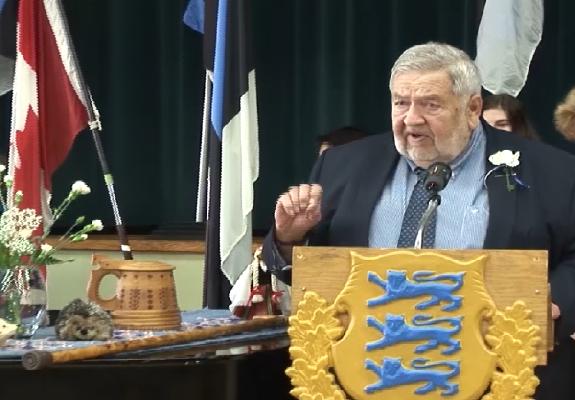Laas Leivat
In the non-Russian areas of the Russian Federation the May 9th Victory Day celebrations which are meant to elicit feelings of togetherness actually trigger the opposite emotions.
As an example, in 2013, according to Paul Goble, Russian Germans released a statement asking Russians not to bismerch the reputation of those Germans who fought against German forces by repeating accusations against them leveled by Moscow.
Some Tatar nationalists were more blunt in their observations saying that World War II was a tragedy for Tatars, because they gave the “empire their best sons” and the empire paid them back with mass russification. Other Tatars observed that Russians have done everything to “minimize” the heroism of Tatars serving in the Red Army and that Victory Day had become a celebration only for Russians who are remembered as the true heroes of the war.
The gold and black Georgina ribbon marking the anniversary and worn by Russians on Victory Day (it was on everyone’s chest in Toronto’s Earl Bales Park in 2015 and 2016) is also a symbol of Russian superiority say the Tatars. It’s offensive to non-Orthodox Christians.
On the other hand some Russian scholars insist that such opinions are not representative of most of the peoples in the Russian Federation. These are the views, they say, of “ultra-nationalists” in the minority communities. It’s interesting to note that many Russians view the Victory Day skeptics amongst non-Russsians as being a sign of the “weakness” of the Russian empire. (Pikemalt Eesti Elu 27. mai paberlehes)

